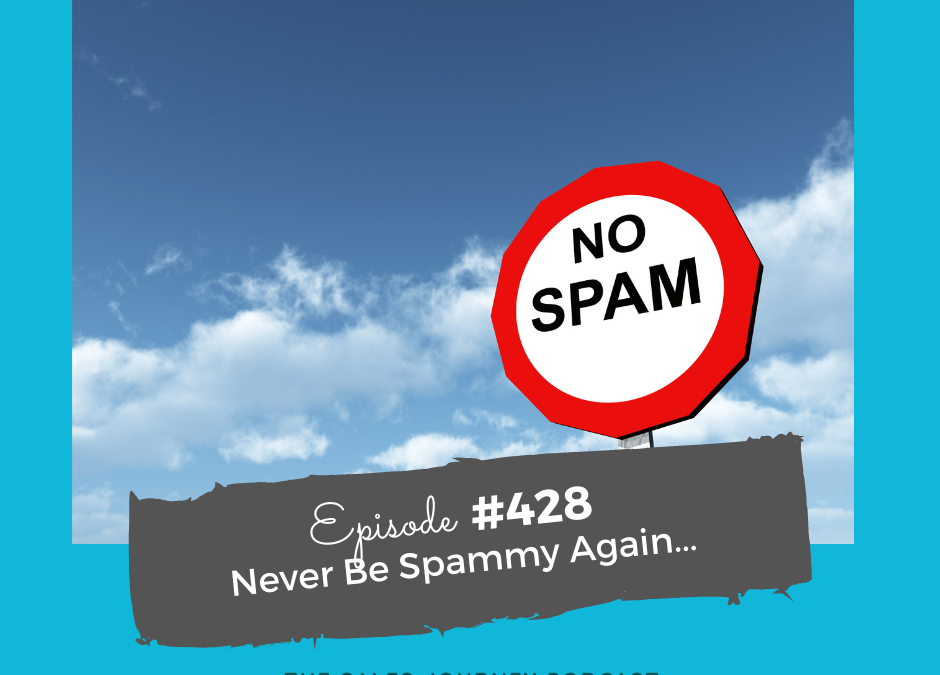“I don’t want to spam my friends and family.” This is a real challenge, and I’m not going to give you some cheerleading about how it doesn’t matter what they think.
Our relationships are important parts of our lives (which we have learned these days more than ever)…
Today I’m going to go through the steps to make sure you aren’t spammy.
Spam is defined as mass, irrelevant communication. So let’s go through what is spam, and what isn’t spam. If you take this list and stick to doing the things that aren’t spam, you should be good to go.
Posting on Social Media
- SPAM– random pictures of your product and how awesome they are. This is not “relevant” to your friends and family because it’s not your product’s social media profile. Your people want to know how YOU are doing, and what YOU are up to, not what your product is up to.
- NOT SPAM- questions you would normally ask people you know for feedback, stories you would tell, tips you would share. If you are excited about something that happened, you would share about that. This could be something great in your business, great with your product, or great with someone you know.
Messenger
- SPAM- Hi, I haven’t talked to you in a while. Want to look at my stuff? This is not relevant to your relationship, or in context.
- NOT SPAM – You have been chatting cordially in messenger about life and reconnecting. They mention a problem you can help with. Asking, “do you know what I do for my side biz? I help X with Y. It would be weird not to offer to help you too…” Or if you are having an event, it would be relevant to go back to messenger and say, “I am having a thing this weekend and I thought it could be right up your alley. Would you like it if I shared the details with you?”
Outreach and spam aren’t the same thing. Even outreach to people you don’t know isn’t spam! In my business partner Karen’s neighborhood, there is a realtor who brings gifts to everyone’s home from time to time. They didn’t ask. He may not know everyone. He gives them to all the homeowners in the neighborhood. Since he is a realtor, and they are home owners, it’s not spam.
However, if he passed out gift baskets to a random string of cars in a mall parking lot, it “might” be considered spam. To homeowners it would be relevant. To non-homeowners it would be spam.
This brings me to another point, spam is in the eye of the beholder. It’s about perception. Since we can’t control their perception, this can cause analysis paralysis. We can, however, control our communication. We can simply take a few words to explain why our message is relevant.
- Acknowledge the awkward
- Why you are reaching out (or sharing something)
- Give an agenda and timeframe
- How does that sound?
Here is an example: “Hi ______. I know we haven’t chatted in a long time. I’m reaching out because I have a business helping X with Y and I thought of you because you are also a business owner.
I was thinking it would be helpful to both of us to connect. If you would like, I really love building relationships with other business owners and I wanted to invite you to a virtual coffee date. I’d love to hear more about your business, I’ll share about mine, and maybe we can find a way to be helpful to each other. If it results in something, great. If not, no big deal. I was thinking like 30 min. How does that sound?”
I hope this is helpful. 🙂
Tasha
P.S. If you are looking to connect authentically with people online or in person you are invited to join a free live training on March 17th where we will talk about the 5 secrets for selling without being spammy or salesy. You can grab the details and register at emergesalestraining.com/5secrets

